|
By Nadia Dalimonte In love with fall and its simple pleasures. The chill breeze and crisp changing leaves. Pumpkin carving, apple picking, and warm cider. Curled up on a cozy night watching a movie. Certain movies become autumnal love letters just for you, making you fall deeply for the season even more. It could be a sweeping romance, or a moody adventure…an emotional drama, comforting comedy or animated feature. Any genre applies. What makes a crisp fall day the best time to press play on certain movies? The answers are totally subjective! Nostalgia is one. Fall is a time of change - the leaves are falling, and new beginnings are on the horizon. The emotional response to change can often be nostalgic, and some movies just have that wistful affection. Hello, the ending of E.T.! How about when Jesse and Celine lock eyes in the bookstore in Before Sunset? Or when Meryl Streep has her hand on that car door in The Bridges of Madison County? Stories have the power to conjure up different emotions that resonate seasonally. What movie do you feel most drawn to during this time of year? Here are some of our cinematic fall favourites! Not all selections are set during the fall, nor do all have stories with a fun, cozy subject matter. But all share a unique quality, best felt when the weather cools and flannel outfits are in full force.
0 Comments
By Nadia Dalimonte Evan Rachel Wood in Kajillionaire (2020) From writer/director Miranda July, Kajillionaire is a wonderfully offbeat story of unexpected human connections and bonds. July’s comedic drama paints a moving picture of con artists, reparenting, romance, and rebirth. At the center of the story is a peculiar family - con-artists Robert (Richard Jenkins), Theresa (Debra Winger), and their daughter Old Dolio (Evan Rachel Wood). They all live in a leaky one-bedroom office/apartment in a bubble factory. Robert and Theresa have spent years training their only child to scam and cheat at every opportunity. Old Dolio learned how to forge before she knew how to write. They are determined not to let her fall into the societal trappings of dreaming for more. “Most people want to be kajillionaires…that’s the dream”, Robert says. “That’s how they get you.”
The scams are small at first (stealing mail; “finding” lost items in the hopes of being rewarded). When the family are given 2 weeks to make up months of rent, however, they are pushed into a $1500 corner. During a desperate heist to pay the rent, they charm a stranger into joining them, only to glide into unexpectedly personal encounters along the way. The film is an emotional heist story unlike any mission impossible. July creates a family of characters who have a detached view of life and so for them, letting go comes easily. They can leave people, places, and things behind without any form of innate personal attachment pulling the strings. But that all changes with the stranger encounter from a hastily planned heist. The plan: fly to New York together, fly back as strangers, and claim a lost baggage fee for Old Dolio’s “missing” luggage. Robert forces small talk to get through turbulence, one of few hints at who he is as a person. Old Dolio’s parents are mysterious figures; it’s unclear what their backstories are and how they came to live the way they do. But not knowing adds to the appeal of these characters, the actors’ performances, and the film. July plays on the unknown so well. Jenkins, Winger, and Wood are wonderful in their roles. Something about this world pulled me in and I can’t explain why. While on the plane, Robert and Theresa meet Melanie (Gina Rodriguez), a talkative eyewear salesperson who is in her own way entranced by the family. As Old Dolio reluctantly watches on from a few seats behind, her parents manage to bring Melanie into the scam, and Melanie is game. When the heist falls short upon landing - the lost baggage cheque could take as long as 6 weeks to arrive - Melanie comes up with an idea. Visit her elderly clients and coerce them into selling their antiques, which the family can then resell. Melanie comes out of nowhere almost as a knight in shining armor, not particularly for the family but for Old Dolio, whose reluctance to let her in is met with Melanie insisting on getting closer. The relationship is an intriguing dance of emotional tension that plays out brilliantly the closer they come to a personal understanding. Old Dolio expresses herself in such a guttural way, often reacting in sound and movement. Evan Rachel Wood does such a wonderful job at playing this character from the inside out. Everything she does is a reflection of her mental state of mind. Her wishful yet detached thinking is the beating heart of the story. From Old Dolio’s point of view, life is neither here nor there. Instead of having grown attached to life, she’s ready for when her time is up, which could be any given moment. There’s a standout sequence that takes place at one of Melanie’s elderly client’s home. Abe, a no-show for his glasses pickup, lives alone on his deathbed. Melanie and the family trio arrive to a shell of a home, and Abe has some requests to make things seem alive again. Abe and Old Dolio share a moment together, as a result of a new plan the family hatch when the antique selling goes kaput: look for elderly people’s cheque books, forge the signatures and cash the cheques. Unbeknownst to all, he’s dying, and doesn’t want to do so alone. So Old Dolio stays with him, assuring him it’s okay to let go, because life is nothing. He wants them to watch TV, clink silverware, and make small talk. Old Dolio and her parents play house, which feels clearly like a put-on as these characters are not used to the cozy ‘How was your day, sweetheart?’ setting. In fact, her parents don’t call her sweetheart, or hon, or any comforting words. They’re quicker exhibiting such behaviour to Melanie, a stranger, than to their daughter. So the gravitational pull that happens between her and Melanie begins to chip away at Old Dolio’s sense of duty to her family. What makes Kajillionaire work so well is its depiction of unexpected connections between people, and the wave of emotions that are conjured up in response. July touches brilliantly on themes of birth and rebirth, parenting and reparenting, another chance at living within the one life we get, and the pangs of regret from not getting it right the first time. A gorgeous, evocative score by Emile Mosseri compliments the story perfectly. Another standout sequence, in the final act of the film, is a family dinner scene which comes after an unfortunate truth about Old Dolio’s parents is revealed (or rather, reinforced). Robert gives a rare glimpse into his emotional regret that he and Theresa didn’t treat their daughter like a child during her childhood. While the love that exists between Old Dolio and her parents is not expressed, she has internalized their way of loving. “We can only ever be how we are,” she says as if speaking for them, “but we love you, and we wish you well.” I felt a part of the con from the beginning up until the very last scene of the film. By Nadia Dalimonte Obinna Nwachukwu in Residue (2020) Merawi Gerima’s directorial debut Residue, which recently premiered from Array on Netflix, is a stunning achievement not to be missed. A poetic blend of past and present, with seamless transitioning between imagery and sound, depicts the stirring headspace of gentrification.
The film follows a young filmmaker Jay (Obinna Nwachukwu), who returns to his childhood home in Washington D.C. (after many years away) to write a screenplay about his experiences. Upon returning, he discovers that the neighbourhood he once knew is unrecognizable. Streets are paved and painted over. New residents occupy familiar houses. Old friends are lost in time. Gerima’s camerawork evokes dreamy faces and faded memories. He plays on time in a creative and personal way, bringing vivid moments of history through blurred recollections, then snapping back to reality in an instant. Gerima does an incredible job displaying the protagonist’s emotional response to a changed livelihood, as the protagonist himself is trying to put feelings on paper. “Did you actually think a script would make a difference?”, the opening narration questions. Jay is deep in reflection, wanting to capture experiences through writing while also searching for people from the past who can fill in the blanks. He discovers one of his childhood friends, Demetrius, is in prison. Upon visiting Jay’s parents, Lavonne and Reggie, Jay learns they’ve been receiving constant notices to sell their home. The community has been erased by a gentrified setting infested with blatant ignorance, and the aftermath is depicted through the protagonist in a compelling way. Nwachukwu delivers one of the year's best performances as Jay. This film is a strong debut feature, a passionate collaboration and powerful portrayal of disorientation on screen. By Nadia Dalimonte Millie Bobby Brown and Helena Bonham Carter in Enola Holmes (2020) Enola Holmes is an energetic, charming adventure that investigates divided loyalty and the power of taking one’s own path. Millie Bobby Brown, playing her first lead role in a feature, brings plenty of charisma to the title character in an empowering narrative about self-discovery, family ties, and the wrestling for succession in a changing world. Set in 1884 England and based on the book series by Nancy Springer, the film tells the story of free-spirited teenage Enola (Brown) on a mission to follow her own path. Her sleuthing skills are put to the test when she discovers that her mother (Helena Bonham Carter), who raised her to be independent, has disappeared.
Left alone, Enola sullenly finds herself under the wing of her brothers Mycroft (Sam Claflin) and Sherlock (Henry Cavill), both of whom have not so much even written to her since they last saw her many years ago. The brothers decide to split up their responsibilities - Sherlock will solve the case of their mother’s disappearance, while Mycroft will keep Enola under control. His idea of caring for his little sister is to ship her off to finishing school, where she can become a “proper” girl defined by domestic responsibility. In true free spirit, Enola outwits them both and embarks on a London-bound journey to solve the case herself, while fending off those trying to reign her in and stumbling upon a new mystery along the way. On her travels, she becomes entangled with young Lord Tewkesbury (Louis Partridge), on the run from his seemingly domineering family. She at first dismisses their train encounter, but upon discovering that his life is in danger, she narrates her inclination to help someone who doesn’t have the strength to help himself. What begins as a life saved turns into a case of divided loyalties and succession within a family bracing for a country on the brink of change. The closer Enola gets to finding her mother, the more imminent the danger looms above Tewkesbury, and the story shifts gears at a crossroads. Enola breaks the fourth wall, which she does often throughout the film, to declare that her mother can wait as this silly boy needs more urgent help. The shift feels disappointing at the time it occurs, mainly because up until this point the screenplay has done a splendid job establishing the mother-daughter relationship. There are many charming little sequences of Enola finding herself in situations that we see mirror memories with her mother, stressing all the lessons learned as a child that she can now apply in real life. Plus, the two actresses are wonderful in their roles, more so Brown who totally captures that energetic zest for independence and carries the film on her shoulders. I wanted the story to continue in that direction. But with the film’s conclusion and in retrospect, the shift pieces nicely together as part of the narrative. The Tewkesbury mystery bits don’t leave for a particularly groundbreaking discovery, and the familial storyline is not nearly as intriguing as Enola’s. While the film lacks in that respect, it’s refreshing in a number of different ways. The familial tie to Sherlock (solid work by Cavill) doesn’t overshadow Enola’s journey as a detective in her own right. What’s also refreshing to discover is the way in which the film depicts her mother's whereabouts, avoiding a typical buildup to a reveal. There are much more satisfying reveals during the actual search, which paint a bigger picture of who her mother is and what she’s fighting for. Reveals are in detailed moments, whether it be a neat closeup of a woman’s suffragette meeting poster or a wonderful jiu-jitsu meeting between Enola and her mother’s friend Edith (Susan Wokoma). The breadcrumbs left behind all come together in HBC's final scene with Brown, an emotional moment of growth between mother and daughter. In searching for her mother, Enola follows breadcrumbs to self-discovery and female empowerment. In her mother’s words, there are two paths she could take. Hers, or the path others choose for her. Enola chose hers. Her life is her own, and the future is up to us. By Nadia Dalimonte Jessie Buckley in I'm Thinking of Ending Things (2020) Nothing is as it seems in writer-director Charlie Kaufman’s mind-bending new movie, I’m Thinking of Ending Things. The plot centers on a woman named Lucy (or is it Luisa?) who joins her new boyfriend, Jake, on a snowy road trip to meet his parents at their remote farm. Lucy (Jessie Buckley) is experiencing second thoughts about her relationship with Jake (Jesse Plemons). Deep down she already knows they are not going to last as a couple. As far as she’s concerned, this road trip will likely be the last time she’s in a car with him. Lucy is thinking of ending things. Deep down, perhaps Jake knows. Perhaps he’s known for as long as Lucy has.
The first chunk of the movie takes place inside this car on the ride to nowhere and, evidently, everywhere. From the very beginning, Kaufman plays on time, thoughts, and memories. He grapples with longing and regret in a way only he can, and yet it’s unlike anything I’ve ever seen. Everything about this movie is unexpected. The screenplay weaves in and out of past, present, and future frames of the characters’ minds. As if to capture fleeting feelings in a bottle. Lucy’s uneasiness only grows when she and Jake arrive at his parents’ farm house. Something’s just not right. There is a sense of fear mounting from the deliberately prolonged official entrance of mom and dad. We see a glimpse of mom (Toni Collette) waving through the window when the car pulls up. She keeps waving, more than one normally would, as if to say hello and goodbye within the same frame. In that one tiny moment, a testament to Collette’s talent, I just know she is cracking open the window just a sliver to say that something magnificent is coming. She’s terrific in this movie. Her performance gave me the feeling of journeying through time in someone else’s shoes. Once Jake officially introduces Lucy to his mom, and dad (David Thewlis), there really is this feeling that the four of them somehow melt into one. As if they’re all sharing the same mind, which is reflected quite strongly in the dinner scene. One of the characters can’t be untethered without it affecting the others. Side note: dinner with Toni Collette sounds fun, doesn’t it? All the performances are pretty fantastic. Buckley is completely in control of and committed to her character, while also being able to throw that all away and give herself to the unexpectedness of her surroundings. Plemons plays someone who has a rollercoaster of a journey, and his performance certainly feels that way. Unassuming from the start, then slowly unravelling into territory where you don’t know what’s going to happen exactly. Thewlis does physicality well; I could feel the wears and tears of his life experiences in the way he carries himself, how he speaks and moves around. Once dinner ends, and the snow keeps falling, and Lucy’s cell keeps ringing, and the uneasiness keeps growing, Lucy really needs to get back to the city. She’s told Jake countless times from the beginning that she had to get back home that night, in time for work the next morning. And then the movie takes another turn, and this time it’s absolutely bizarre. To say the least. Kaufman goes down a rabbit hole of warped time. I’m nowhere near close to understanding what I watched, and yet there is something about Kaufman’s narrator that pulls me in with a desire to rewatch and repeat the experience. There’s so much going on in this blend of fiction and non-fiction, of live action and animation. I’m Thinking of Ending Things is an intriguing, head scratching, fill-in-the-blanks mind trip. By Nadia Dalimonte 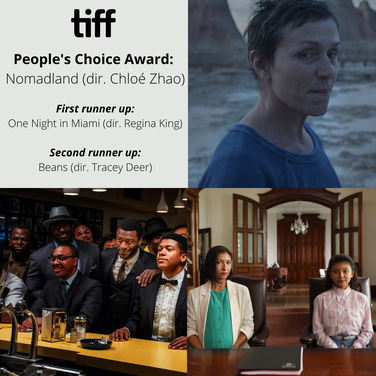 The people have spoken! The audience awards at this year’s Toronto International Film Festival have been announced. Now that the festival is officially over, here’s a look at the awarded films, including the TIFF 2020 People’s Choice Award winner and the 2020 Amplify Voices Award winner. All films part of the festival’s official selection were eligible for the jury awards. Female directors swept the TIFF audience awards this year. Chloé Zhao's Nomadland is on a roll with glowing reviews. After winning the Golden Lion at the Venice Film Festival, the film earned the People's Choice Award at the Toronto International Film Festival. This is the first time that the Golden Lion winner has also won the People's Choice Award. Regina King's outstanding directorial feature debut One Night in Miami was the first runner up. Coming in as the second runner up was another feature debut, Tracey Deer's heart-wrenching film Beans. Michelle Latimer's eye opening documentary, Inconvenient Indian, picked up the Documentary award. Meanwhile in the nocturnal slate, Roseanne Liang's Shadow In The Cloud won the Midnight Madness Award. The recipient of the Changemaker Award, a new prize in 2020 awarded to a film that tackles social change, is Kelly Fyffe-Marshall for her short film, Black Bodies. Juries for the Canada Goose Amplify Voices Award, another new prize this year, selected three films from the official festival selection made by self-identified BIPOC and Canadian filmmakers. The winners included Latimer's Inconvenient Indian picking up a second award, Chaitanya Tamhane's The Disciple, and Philippe Lacôte’s Night of the Kings. While this year's TIFF experience was quite different, the scaled back festival was a much needed source of comfort and exploration. Artistic director and co-head Cameron Bailey, and co-head Joana Vicente, completely reinvented the festival during unprecedented times, pulling off online screenings, virtual press conferences, drive-ins, and socially distanced physical shows. While I missed walking the buzzing streets of Toronto and chatting with fellow enthusiasts in lineups that went on for blocks, some personal perks to a digital festival include wearing pajama pants and constantly brewing coffee. Must say, the constant caffeine helped immensely with my TIFF coverage. Below are the digital screenings I attended, and the reviews I wrote for each. Happy reading! Nomadland (2020) Shiva Baby (2020) One Night in Miami (2020) Beans (2020) Wolfwalkers (2020) No Ordinary Man (2020) Another Round (2020) Inconvenient Indian (2020) Pieces of a Woman (2020) Lift Like a Girl (2020) By Nadia Dalimonte Mads Mikkelsen in Another Round (2020) There’s something so intoxicating about Mads Mikkelsen. He’s been delivering consistently great performances over the years, from his villainous turn in Casino Royale and his intriguing work on NBC’s Hannibal to his previous collaboration with Thomas Vinterberg on The Hunt. In Vinterberg’s latest, Another Round, Mikkelsen delivers his best work to date. He gives a remarkable lead performance in a thoughtful film that follows four high school teachers who start a drinking experiment to liven up their lives.
Mikkelsen plays Martin, a high school teacher who has become indifferent towards teaching and life in general. He can’t connect with his students, and his lack of enthusiasm becomes break room chatter. A group of teachers and students call a meeting with him so they could point out their concerns over his teaching methods hindering the students’ learning. Martin accepts their observations with a mere acknowledgment, but deep down, he knows something is missing as he watches life go by. His three teacher friends know it too. One night, the quartet go to friend Nikolaj’s 40th birthday dinner. His friends are no strangers to alcohol, and in observing how much fun they seem to be having while he contemplates, Martin quietly breaks down from a place of emptiness. “I don’t do much […] I don’t see many people […] I don’t know how I ended up like this”, he explains to the table. It’s such a remarkable piece of acting from a very gifted performer who can speak a thousand words with a single look, and Vinterberg knows it. Mikkelsen has many, many close-ups throughout the film. Martin’s friends think he lacks self-confidence and joy. They urge him to drink…loosen up, have fun, become interesting and alive. Martin takes a sip, opens up, and soon enough they all find themselves having a great night where they feel alive. Holding onto the feeling, the four friends decide to conduct a study on the effects of drinking at consistently low levels, using themselves as the subjects. What ensues is a dangerous, threatening and at times humorous balance of teaching while trying to keep up with this study. What makes Another Round tick is the way Vinterberg observes the comedic and dramatic elements of alcoholism. He delves into various degrees of drinking, constantly shifting the tone to show how easily one can spiral into addiction just from curiosity. Instead of limiting the film around one perspective, he observes the many ways alcohol affects people. While some fall down devastating paths, others have never felt more productive. Interestingly, none of the characters ever incorporate just one perspective. Some become worse off than others, but they’re all upholding a constant low level of intoxication that gives them each what they consider personal highs. Vinterberg does character work very well. Mikkelsen in particular sees a strong arc that builds from quiet and unconcerning to spontaneously assertive. Martin finds himself more excited by and dedicated to his lessons, leaving his students buzzing as they leave his class. He finds confidence professionally, which trickles down to his family life as he asserts himself more in the house, particularly as a husband. It’s a side to him that his wife hasn’t seen in a long time, so much so that when he hints at a spontaneous canoe trip and actually books it, she takes a coinciding night shift at work anyway, not thinking he was actually serious. Martin’s relationship with his wife Trine (Maria Bonnevie) had been stalled for some time, and the more he pushes his alcohol intake to up the stakes, the more they suffer as underlying issues are brought to light. As much as the film plays out its dramatic beats, it’s also a celebration of life, which lays the foundation for a totally joyous ending sequence that comes out of nowhere but still feels completely in place. Another Round leaves a lasting impression about the lengths that people dare go in order to pull themselves out of a midlife crisis and feel something again. Even if they don’t reach a real state of happiness, the moments of relief are refreshing to watch. By Nadia Dalimonte Vanessa Kirby in Pieces of a Woman (2020) Pieces of a Woman has the ingredients of a melodrama. While its constructing doesn’t always work, the piece that makes it resonate is the fragmented way in which director Kornél Mundruczó studies a character exhausted to bits from unspeakable grief. With an unrelenting focus on moments of discomfort, and an absolutely draining first act, the film has an unwavering emotional charge. Vanessa Kirby is the glue holding all the fragments together with a knock-out performance that is soul-stirring beyond the screen. It’s a performance that will linger in my head for a long time.
Martha (Kirby) and Sean (Shia LaBeouf) are a couple reeling from tragedy in very different ways. After a devastating loss, their relationship shifts into rearranged fragments of a past life. The severe level of disconnection and emotional conflict takes its toll under one roof. There’s one striking scene, actually more of a blink-and-you’ll-miss-it moment, of Martha sitting on her sofa while Sean proposes a road trip to Seattle. The two just had a conflict about the baby’s room. He’s talking in the background, promising how good Seattle would be for them, while she pulls a mimicking face. It’s a testament to Kirby’s skill that she’s given such a lived-in portrayal full of remarkable detail. Her on-screen partner LaBeouf, however, is slightly miscast in the film. He’s a fine actor and it’s not a bad performance, but something feels stilted about his approach. The film explores relational grief that questions the “right” way to mourn. Martha is constantly at the receiving end of how she ought to grieve. It’s an insistent line of questioning coming from not only Sean, but also Martha’s mother Elizabeth (Ellen Burstyn). The two have a rocky relationship that is being pushed closer and closer towards a breaking point whenever they share scenes together. The tiniest moments - Martha flinching away upon her mother’s reach - speak volumes. Considering the emotionally revealing breaking point, a strong monologue by Burstyn who no doubt gives her absolute all, I think the film could’ve benefitted had Mundruczó unpacked the mother-daughter relationship further. The subject matter of Pieces of a Woman is heavy to watch for many reasons, one of which being the heart-wrenching opening sequence. The rest of the film slowly stumbles, broken up into multiple dates flashing on screen. The fragmented storytelling that works wonders as a character study of Martha doesn’t always work when trying to fit other pieces of the puzzle in. The screenplay by Káta Weber gets lost in various ideas about the right thing to do, and descends into a courtroom drama that hinders the final act. But what remains the key piece of this film, from beginning to end, is the powerhouse performance by Vanessa Kirby at her best. By Nadia Dalimonte Rainbow Dickerson and Kiawentiio Tarbell in Beans (2020) The 1990 Oka Crisis in Quebec witnessed a 78-day standoff between government forces and two Mohawk communities protesting to save their sacred land from being torn by a golf course extension. Tracey Deer’s incredible debut feature, Beans, is based around her experience surviving the Crisis. Deer chronicles the events from the perspective of an Indigenous girl named Beans (Kiawentiio Tarbell). The film completely elevates the coming-of-age genre with a refreshing point of view and a standout performance from Kiawentiio Tarbell as a girl grappling with newfound adulthood.
The film begins with Beans and her mother Lily (Rainbow Dickerson) attending a prospective student interview at Queen Heights Academy, a predominantly white school that boasts opportunity. Lily, who has ambitious dreams for her daughter’s future, preps Beans with interview questions and offers full support, while her father would prefer that she chooses a different school close to her roots. On the page, this recalls plots for multiple coming-of-age stories where parents’ wishes get in the way of what their children want. In the case of Beans, this becomes an afterthought in the midst of a community protest, which the local government escalated by threatening to extend a golf course on sacred Mohawk burial grounds. Deer's film centers around women as she tells the story through Beans, who tries to grasp what’s happening around her while also caring for her little sister, under the protective wing of their mother. The power of this film is that Deer does not go into linear detail about the beginning, middle, and end of the standoff. She is more interested in the characters of this story, focusing on how they absorb the violent and heartbreaking effects of the Crisis. Deer also takes an incredibly detailed look into how Beans adjusts to adolescence and peer pressure. An innocent Beans meets a teenager named April (Paulina Jewel Alexis), who has a tough exterior and is eager to teach her how to fight. The two soon get into rebellious decision making and side effects of peer pressure, while also grappling with complete rage against local cops and vile residents. Kiawentiio Tarbell delivers a star-making performance as Beans. She’s absolutely riveting to watch, and her screen presence adds a very strong layer to this story. The cast also includes a few standouts: Rainbow Dickerson, playing a protective and firm mother, is great and has a phenomenal car scene that made me weep. Violah Beauvais, playing Beans’ younger sister Ruby, gives a performance mature beyond her years. Strong writing and overall filmmaking really elevate the coming-to-age genre with a refreshing perspective from an Indigenous girl. It’s unfortunately rare that such representation is seen on film. Beans is a necessary film as well as a doubly exciting debut for its director Tracey Deer and star Kiawentiio Tarbell. By Nadia Dalimonte Zebiba in Lift Like a Girl (2020) Lift Like a Girl is a intriguing documentary that lets intimate observations of the subjects guide the journey, with a new protege at the heart of it. Alexandria filmmaker Mayye Zayed champions and celebrates female weightlifters in Egypt, while also examining tough bonds between athletes and their captain.
In her directorial feature debut, Zayed does a great job capturing the strong sense of female empowerment in a community of girls who are following the lead of Nahla Ramadan, the 2003 gold medallist world champion. Nahla’s father is Captain Ramadan, who trains the girls in the streets of Alexandria. The documentary centers on a teenager named Zebiba training to compete in weightlifter championships. Zayed highlights the realities of rough paths, not just in terms of the sport itself but also (and even more so) the emotional bonds between a girl and her Captain, between the Captain and his trainees. Lift Like a Girl is very much a day in the life that sits with its subjects in moments of silence, concentration, heartbreak, and companionship. The absence of narration, interviews, and score brings an unrelenting focus to this group of people at a particular time in life where they are aiming to be the best in an environment that frustratingly stresses masculinity. For every time the Captain brings the girls up, there are phrases such as “be a man” and “man up” constantly thrown at them, especially in times of perceived failure. The documentary loses its steam midway through, but by the end emerges as a fierce and intimate look at how an entire generation of girls are inspired by a trailblazer. |
Archives
June 2024
Categories |


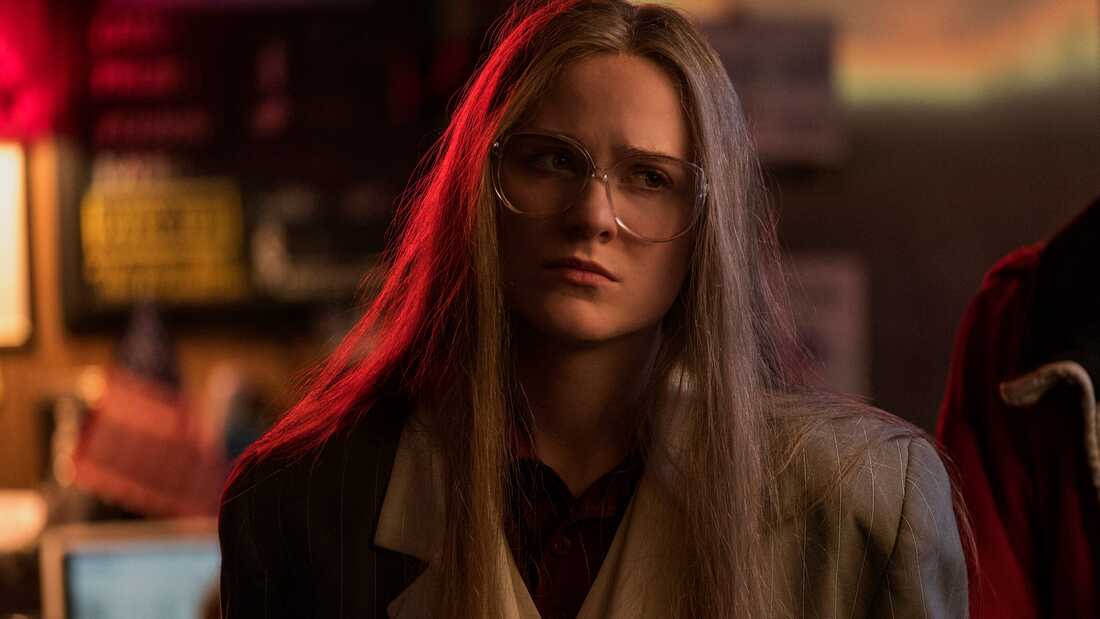
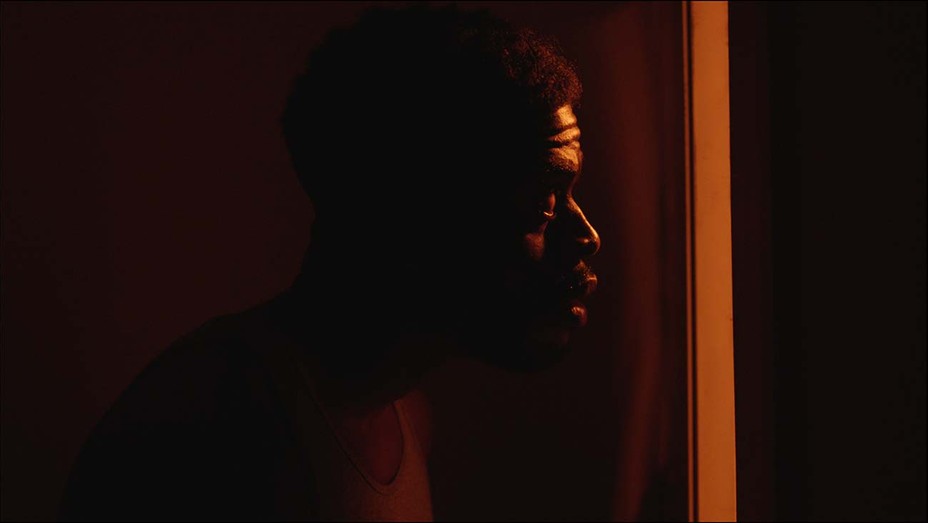
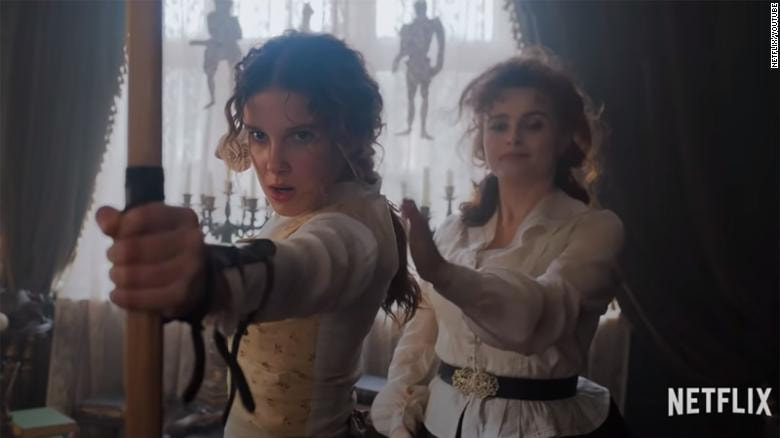
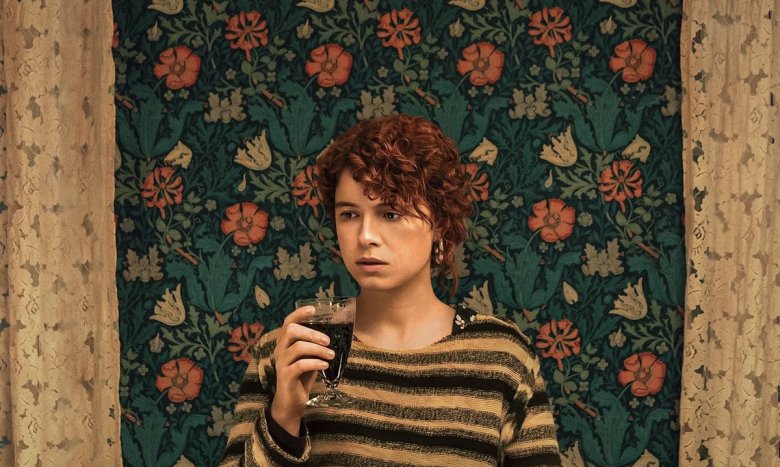

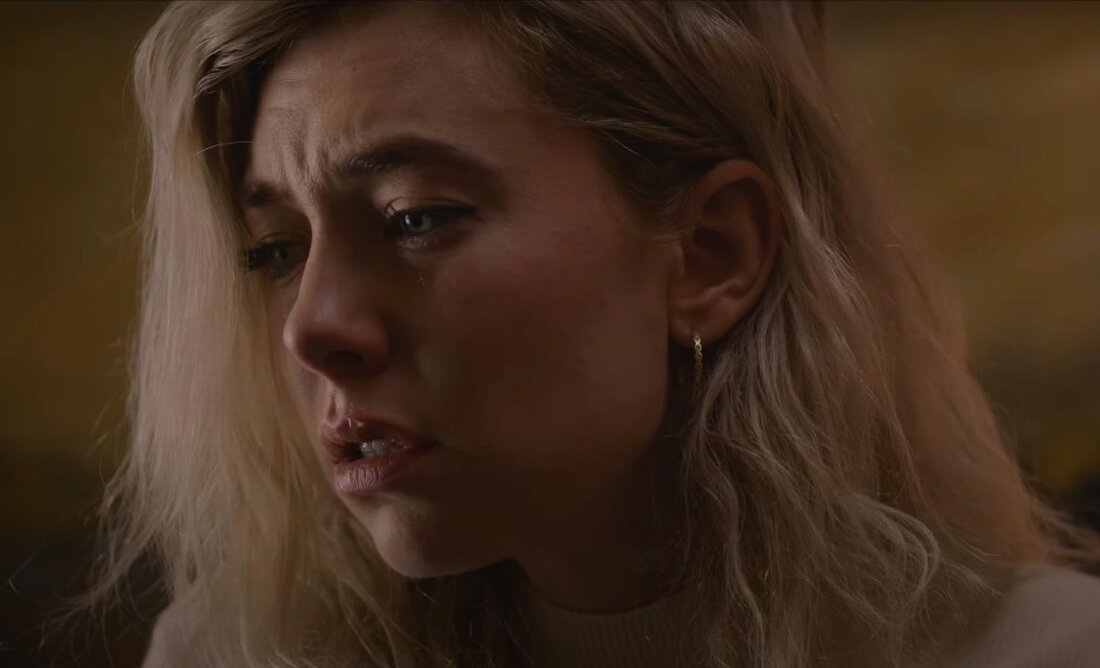
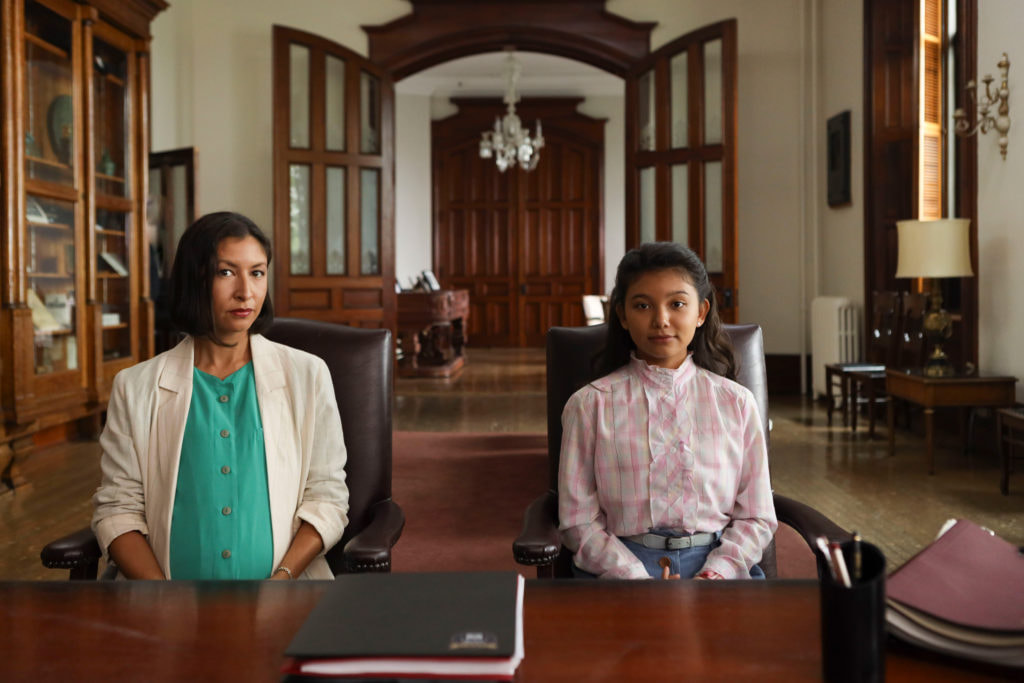
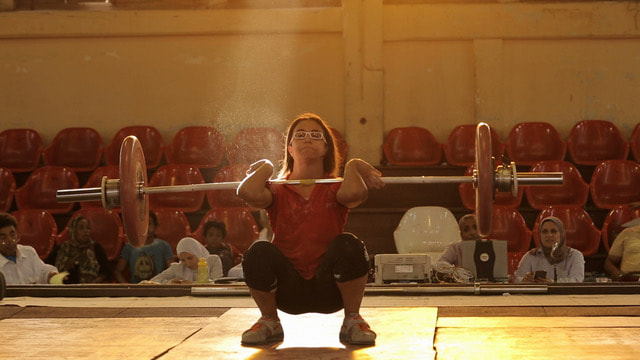
 RSS Feed
RSS Feed